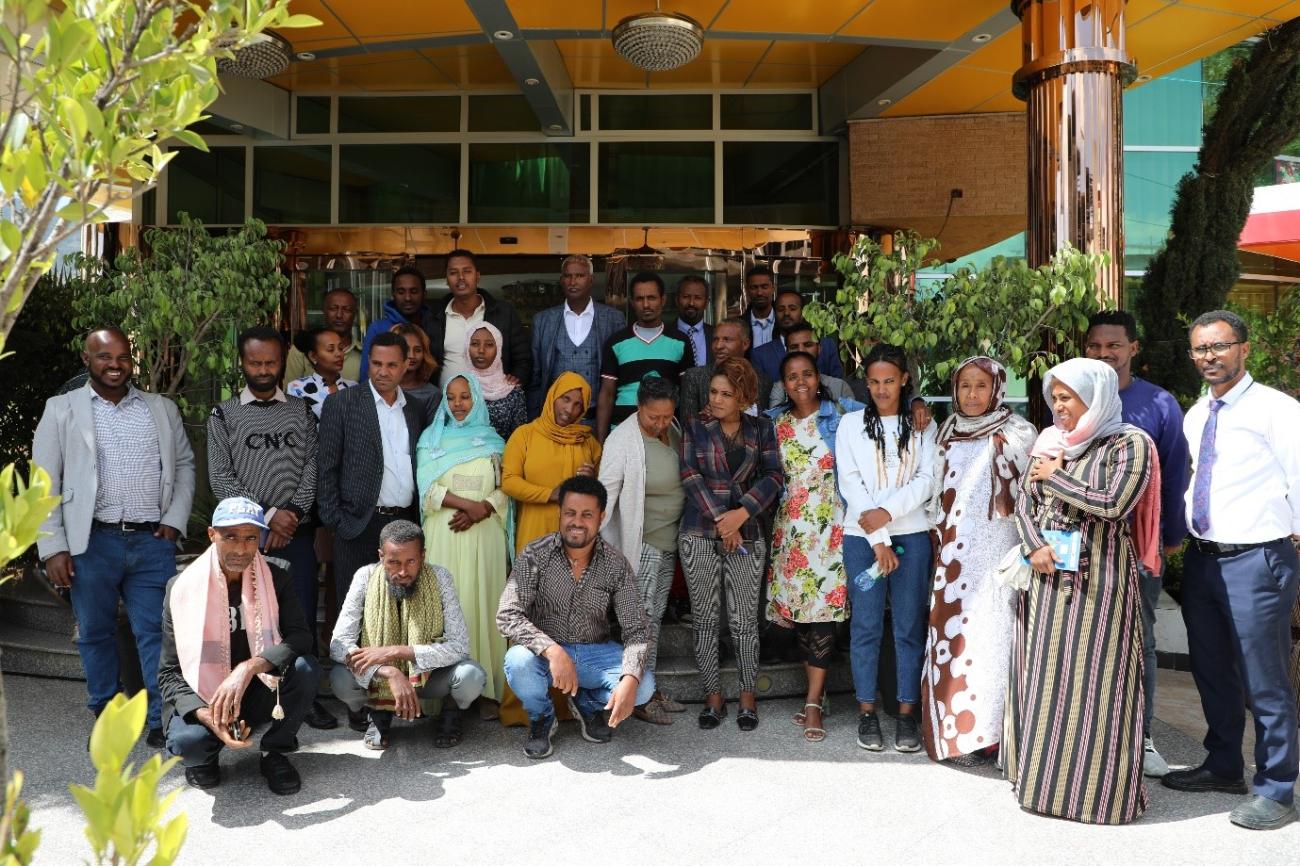Under the joint programme “Addressing Drivers and Facilitating Safe, Orderly and Regular Migration in the Contexts of Disasters and Climate Change in the IGAD Region”, briefly Migration, Disasters and Climate Change (MDCC), which is funded by the Migration Multi-Partner Trust Fund (MPTF) and technically co-led by the International Organization for Migration (IOM) and International Labour Organization (ILO), the ILO conducted a workshop to validate a local market system analysis report in late December.
The workshop brought 35 representatives (10 female and 25 men) from the local government, unions, potential migrants, migrant returnees, community and social partners as well as affected populations together in Dessie.
After explaining how the MDCC project addresses links between migration and climate change, participants discussed findings of the market system analysis, which had identified three value chains – mug beans, small ruminant fattening and solar products – as offering potential for green job creation. Next, participants assessed models to promote green jobs and entrepreneurship opportunities for local communities as well as those displaced by the adverse impacts of climate change. Interventions were prioritised based on the needs of the local population. These included entrepreneurship and technical skill training, access to fair and affordable finance, land for both production and marketing of products, business development and agricultural extension services.
Speaking at the opening session, Ephrem Getnet, Chief Technical Adviser at the ILO said: “The ILO is committed to work with its partners and stakeholders for the successful implementation of this programme that promotes green jobs for local communities, potential migrants, returnees and IDPs. Please take note that your role is instrumental in bringing this to a success.”
One of the participants, Dr. Mohammed, from Kalu Woreda highlighted: “This project will benefit migrants and migrant returnees in our localities through climate resilient green jobs.”
“Kalu Woreda is a highly populated district and many people are forced to move as a result of loss of productivity in farming due to the impact of climate change. At the same time, there is a high number of returnees. Hence, this project will have a huge significance in terms of creating green jobs for youth and supporting efforts addressing irregular migration that is mainly caused by unemployment”, said Dr. Mohammed.
Hussen Endris Abdu is a migrant returnee who took part in the validation workshop and stressed the importance of creating jobs locally. He said unemployed young people do not have to use irregular migration channels that expose migrants to numerous risks, as he experienced himself. He said: “I suffered a lot during my migration journey. I risked my life, worked so hard, but as I was in an irregular situation in my country of destination, I was not able to possess anything. I am now working on poultry in my home village and earning well from the chicken and eggs I bring to the market. I also have my freedom and pride back. With potential support I could get from programmes like this one, I can even create more jobs for my fellow young people here.”
Addressing the participants, Biruhalem Gebremeskel, ILO’s National Programme Officer said: “This project belongs to you, the stakeholders, and it can only achieve real changes if it is implemented with your active participation based on your needs and interests. The ILO will support you in leading and guiding its implementation based on the findings of the studies conducted and with continuous consultations with the stakeholders.”
“What makes this project particularly interesting is that we are not only aiming to create any jobs, but jobs that support resilience to the impact of climate change and that give people an opportunity to access sustainable livelihoods so that they can stay in their vicinity while protecting the environment”, added Biruhalem.



